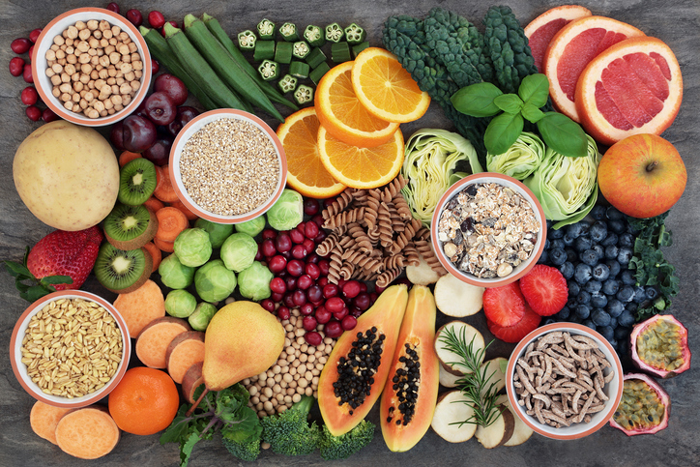The Role of Nutrition in Health and Wellness

Nutrition plays a significant role in overall health and wellness. The food we consume daily provides our bodies with essential nutrients that help maintain physical and mental well-being. Poor nutrition can lead to a variety of health issues, including obesity, heart disease, and diabetes. Therefore, it’s crucial to understand the importance of nutrition and how it impacts our lives.
What is Nutrition?
Nutrition is the study of how our bodies use the food we consume to provide energy and maintain proper functioning. It involves the intake of essential nutrients such as carbohydrates, proteins, fats, vitamins, and minerals. These nutrients are necessary for the growth, development, and maintenance of body tissues.
Macronutrients and Micronutrients
Macronutrients are nutrients that our bodies require in large amounts to provide energy. They include carbohydrates, proteins, and fats. Micronutrients, on the other hand, are nutrients that we need in smaller amounts, such as vitamins and minerals.
Calories and Energy Balance
Calories are a measure of the energy content in food. The amount of energy we consume through food should match the amount of energy our bodies use. Energy balance occurs when the number of calories consumed equals the number of calories burned. Consuming more calories than we burn can lead to weight gain while consuming fewer calories can lead to weight loss.
The Importance of Proper Nutrition
Proper nutrition is essential for maintaining overall health and wellness. Here are some of the reasons why:
Disease Prevention
Eating a healthy, balanced diet can help prevent chronic diseases such as heart disease, stroke, and diabetes. Nutrient-rich foods such as fruits, vegetables, whole grains, and lean proteins can help reduce the risk of these diseases.
Energy and Productivity
Consuming a well-balanced diet provides our bodies with the energy it needs to function correctly. Nutrients such as carbohydrates and proteins are essential for maintaining energy levels and improving productivity.
Mental Health
Studies have shown that proper nutrition can also play a vital role in mental health. Nutrients such as omega-3 fatty acids and B vitamins have been linked to improving mood and reducing the risk of depression.
Weight Management
Eating a healthy, balanced diet can help maintain a healthy weight. Consuming nutrient-dense foods such as fruits and vegetables can help control hunger and reduce the risk of overeating.
The Consequences of Poor Nutrition
Poor nutrition can have severe consequences on our overall health and well-being. Here are some of the effects of a diet lacking in essential nutrients:
Obesity
Poor nutrition is one of the leading causes of obesity. Consuming high amounts of sugar, saturated fats, and processed foods can lead to weight gain and an increased risk of obesity.
Cardiovascular Disease
Diets high in saturated and trans fats can lead to the development of cardiovascular disease. These fats increase cholesterol levels in the body, leading to plaque buildup in the arteries.
Diabetes
Diets high in sugar and processed foods can lead to insulin resistance, which can result in the development of type 2 diabetes.
Malnutrition
Poor nutrition can lead to malnutrition, which can cause stunted growth, weakened immune systems, and delayed development in children.
How to Improve Nutrition
Improving nutrition doesn’t have to be complicated. Here are some simple steps you can take to improve your diet:
Eat a Balanced Diet
Eating a balanced diet that includes a variety of nutrient-dense foods such as fruits, vegetables, whole grains, and lean proteins is key to improving nutrition.
Limit Processed Foods
Limiting the consumption of processed foods high in sugar, saturated fats, and sodium can help improve overall health.
Drink Plenty of Water
Staying hydrated is crucial for maintaining proper bodily functions.
Pay Attention to Portion Sizes
Consuming appropriate portion sizes can help prevent overeating and aid in weight management.
Plan Ahead
Planning meals and snacks in advance can help ensure that you have access to healthy, nutrient-dense options throughout the day.
Seek Professional Help
For those struggling to improve their nutrition, seeking professional help from a registered dietitian or nutritionist can be beneficial.



